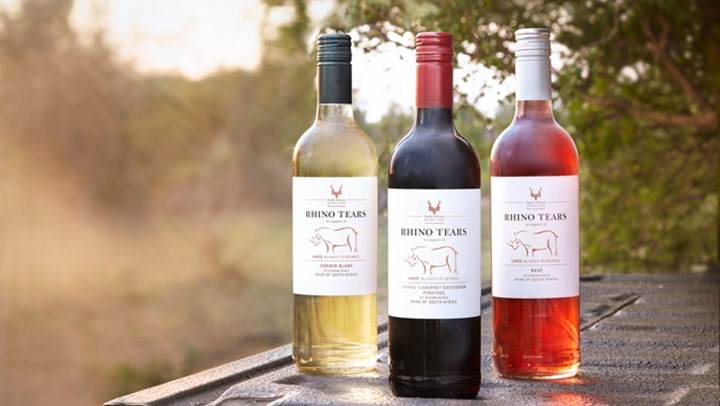
by Karen Mehall Phillips - Sunday, December 3, 2017

Are you a wine drinker? Are you a hunter? Then South Africa may be calling you with its fine wine and vast array of wild game species. But in a recent chat with fellow members of the Dallas Safari Club (DSC), I learned that a sip of wine specifically from South Africa’s Mount Vernon Wine Estate is also good for rhinos in Krueger National Park. No, the rhinos are not toasting to their health. We are—as all proceeds from the estate’s Rhino Tears wine sales go to South Africa’s Unite Against Poaching organization and the 1,600-member-plus volunteer group SANParks Honorary Rangers in support of the two groups’ anti-poaching efforts. Rhino Tears selections include Chenin Blanc, Red Blend and Sweet Rose.’
American hunters and non-hunters alike are also covering anti-poaching bases for iconic wildlife from the home front as the Wildlife Friendly Enterprise Network (WFEN), in conjunction with the University of Montana, just announced the launch of the world’s “first certified “elephant-friendly” tea. DSC friends explained that India’s tea plantations feature drainage ditches that can trap young Asian elephants and that the plantation’s tea production chemicals can poison them. As frequent corridors of movement, the ditches are natural areas where endangered Asian elephants often give birth and then rest for a few days until newborns are strong enough to move with the herd. In a news release covering the launch of the new tea, the WFEN says that “engaging tea growers as active partners in elephant conservation is critical to the future of Asian elephants in the wild.” The WFEN, which is a grassroots group of farmers, ranchers, artisans, indigenous peoples and conservationists, says it specifically partnered with the University of Montana because it is home to the top-ranked wildlife biology program in North America.
E-mail your comments/questions about this site to:
[email protected]
Proudly supported by The NRA Foundation and Friends of NRA fundraising.
